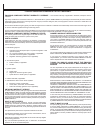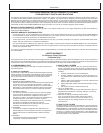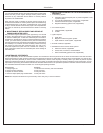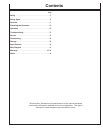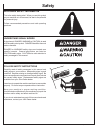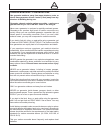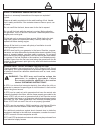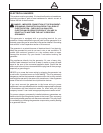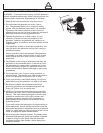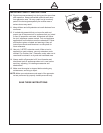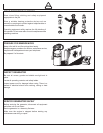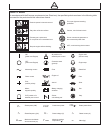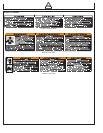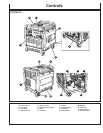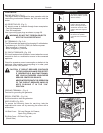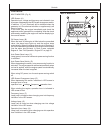
12 Operator’s Manual
IMPORTANT SAFETY INSTRUCTIONS
WARNING: To reduce the risk of injury, read this operator’s
manual completely before using. When using this product, the
following basic precautions should always be followed:
1. Read all the instructions before using the product.
2. Do not enclose the generator nor cover it with a
box. The generator has a built-in forced air cooling
system, and may become overheated if it is enclosed.
If generator has been covered to protect if from the
weather during non use, be sure to remove it and keep it
well away from the area during generator use.
3. Operate the generator on a level surface. It is not
necessary to prepare a special foundation for the
generator. However, the generator will vibrate on an
irregular surface, so choose a level place without surface
irregularities.
If the generator is tilted or moved during operation, fuel
may spill and/or the generator may tip over, causing a
hazardous situation.
Proper lubrication cannot be expected if the generator
is operated on a steep incline or slope. In such a case,
piston seizure may occur even if the oil is above the
upper level.
4. Pay attention to the wiring or extension cords from the
generator to the connected device. If the wire is under
the generator or in contact with a vibrating part, it may
break and possibly cause a fire, generator burnout, or
electric shock hazard. Replace damaged or worn cords
immediately.
5. Do not operate in rain, in wet
or damp conditions, or
with wet hands. The operator may suffer severe electric
shock if the generator is wet due to rain or snow.
6. If wet, w
ipe and dry it well before starting. Do not pour
water directly over the generator, nor wash it with water.
7. Be extremely careful that all necessary electrical
grounding procedures are followed during each and
every use. Failure to do so can be fatal.
8. NEVER try to power the house wiring by plugging the
generator into a wall outlet, a practice known as “back
feeding”. This is an extremely dangerous practice that
presents an electrocution risk to utility workers and
neighbors served by the same utility transformer. It
also bypasses some of the built-in household circuit
protection devices.
If you must connect the generator to the house wiring to
power appliances, have a qualified electrician install the
appropriate equipment in accordance with local electrical
codes. Or, check with your utility company to see if it can
install an appropriate power transfer switch.
9. No s
moking while charging a battery. The battery emits
flammable hydrogen gas, which can explode if exposed
to electric arcing or open flame. Keep the area well-
ventilated and keep open flames / sparks away when
charging a battery.
W
A
R
N
I
N
G
W
A
R
N
I
N
G
S
I
N
T
H
E
M
A
N
U
A
L
S
.
W
A
R
N
I
N
G
S
I
N
T
H
E
M
A
N
U
A
L
S
.
C
A
U
T
I
O
N
O
C
A
U
T
I
O
N
S
I
N
O
T
H
E
M
A
N
U
A
L
S
O
C
A
U
T
I
O
N
S
I
N
O
T
H
E
M
A
N
U
A
L
S
O
C
A
U
T
I
O
N
S
I
N
O
T
H
E
M
A
N
U
A
L
S
O
C
A
U
T
I
O
N
S
I
N
O
T
H
E
M
A
N
U
A
L
S



